Should Taiwan put its future in U.S. hands?
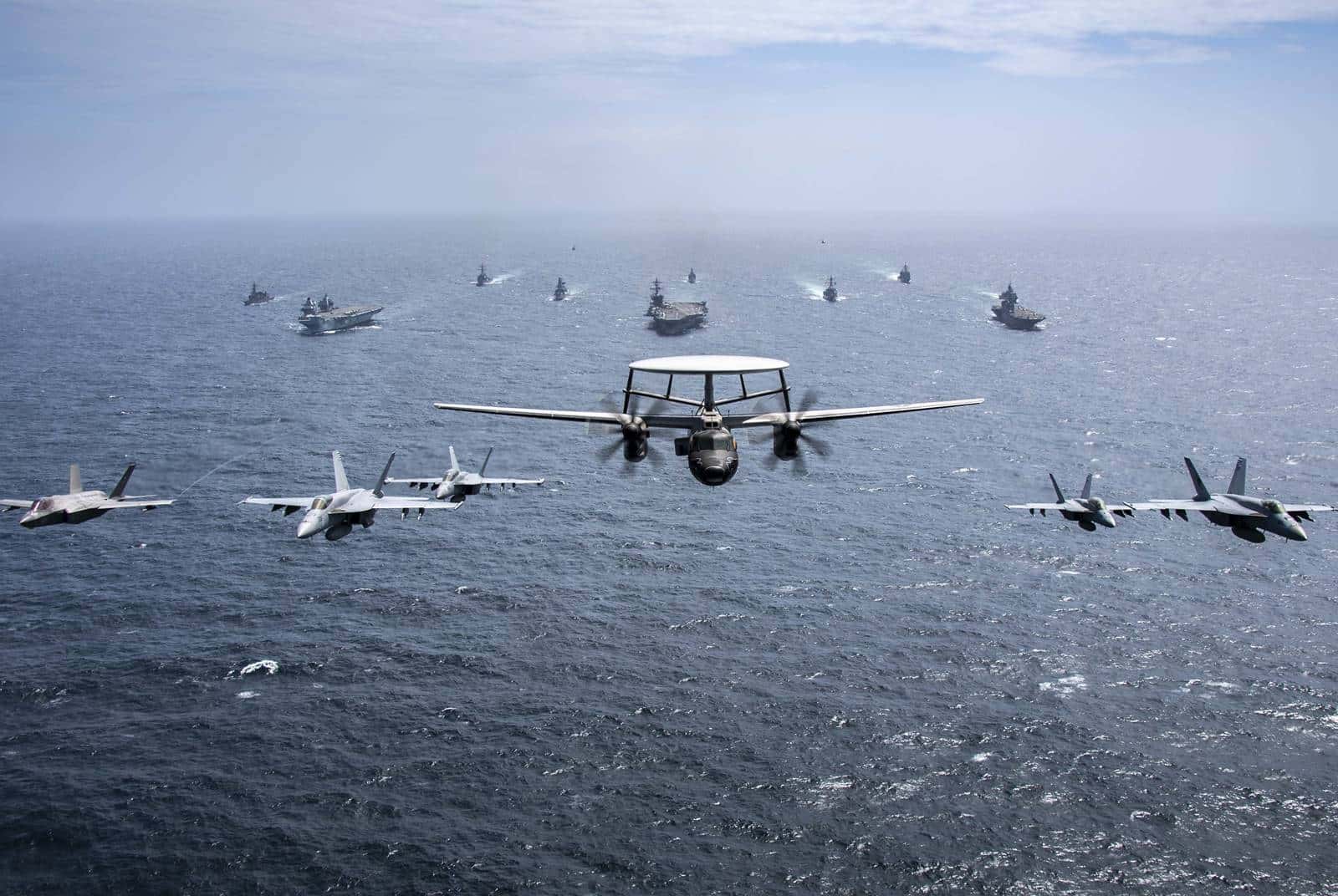
Source:USN
CommonWealth magazine’s “State of the Union and U.S.-China Ties Survey” has found that more than half of Taiwan’s people believe the United States would help Taiwan militarily in the event of an attack by China. But is that realistic, and should Taiwan tie its future to the U.S.?
Views
Should Taiwan put its future in U.S. hands?
By Shuren Koo, Peihua LuFrom CommonWealth Magazine (vol. 740 )
In 2021, 961 Chinese military aircraft flew in Taiwan’s air defense identification zone over 239 days. “There were not even 100 a year three years ago,” said Lo Chih-cheng, a lawmaker with the ruling Democratic Progressive Party (DPP) who heads its international affairs department.
These frequent military sorties by People’s Liberation Army planes in waters not far from Taiwan drew considerable international attention and prompted the Economist in May 2021 to highlight Taiwan on its cover as “The most dangerous place on Earth.”
“I think the implication of this is to be careful. Be very, very, very, very careful,” said Larry Diamond, a leading American scholar on democracy and long-time student of Taiwan’s democratic evolution, in an interview with CommonWealth. His emphasis on the word “very” clearly intimated that Taiwanese citizens need to face up to the threat of a Chinese invasion.
Just under a year after U.S. President Joe Biden took office, CommonWealth conducted a poll on what people in Taiwan think of U.S.-China relations. We found that in contrast to the angst seen internationally, local respondents were relatively blasé about the risk of a Beijing attack and quite optimistic about U.S. power and that the U.S. will help Taiwan defend itself.
The world more worried than Taiwan about Taiwan Strait tensions
In the survey, 63.7 percent of respondents said they were not worried a war would break out across the Taiwan Strait within a year. That was 15.4 percentage points higher than in last year’s survey, indicating that despite the frequent Chinese military flights, Taiwanese were even less fearful than a year ago of the risk of war in the short term.
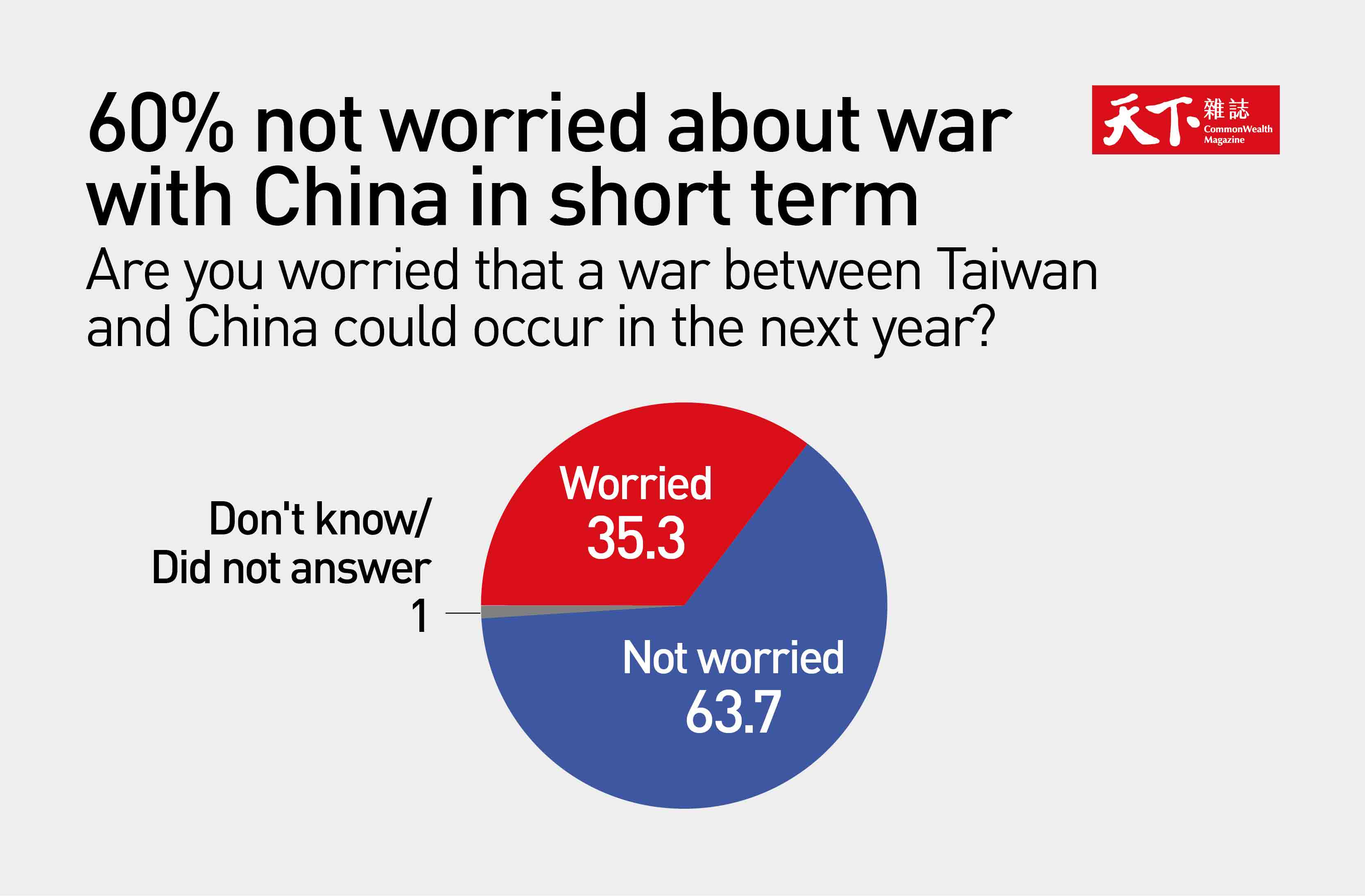
Over the longer term, 57.9 percent of respondents said they did not think Beijing will ultimately use force on Taiwan.
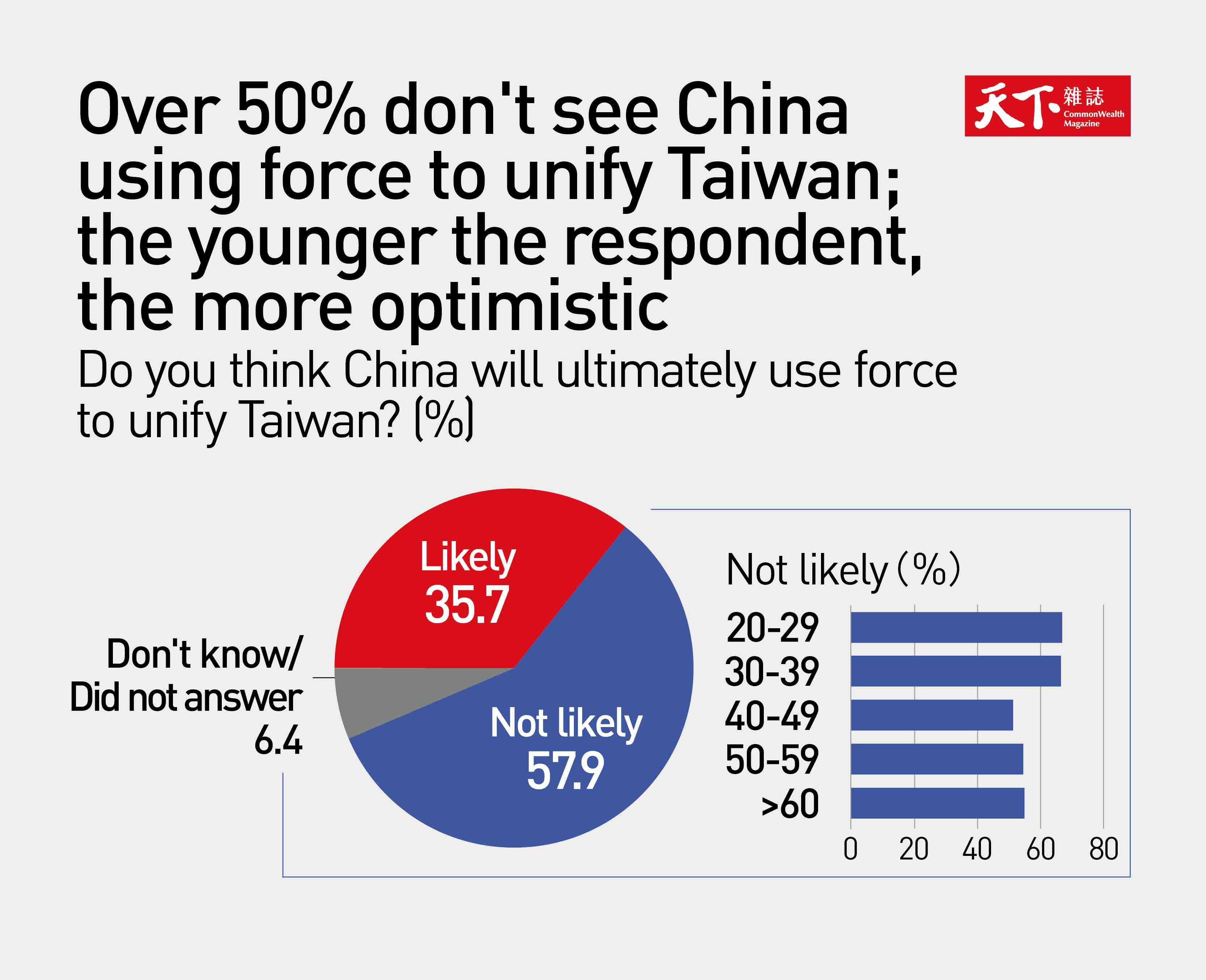
In other words, people in Taiwan are generally not concerned about the threat of Chinese military force in the short or long term, and the feeling was the same across all age groups.
Lo attributed that result to Taiwanese growing accustomed to China’s threats of unification by military force and becoming somewhat numb to the “cries of wolf.”
He was also not worried that Taiwan and China will soon be embroiled in war because none of the three conditions that could trigger a Chinese attack – overconfidence on Beijing’s part, a threat to the regime, or a misjudgment of the situation – have yet to materialize.
Lo warned, however, that China’s regular harassment and influence campaigns involving tactics such as fake news, intelligence gathering, and co-opting businesspeople and politicians still posed a hidden threat to Taiwan.
Alexander Huang, the director of the opposition Kuomintang’s (KMT) international affairs department, was less optimistic, arguing that the results showed Taiwanese do not want to face reality.
“China’s military threat is a fact Taiwanese are not willing to confront because it would incur real costs, including extending military service, setting up civilian defense networks, and training for disruptions in water, electricity, and food,” he said.
When respondents were asked if they thought the American government would send troops to help Taiwan in the case of war, 58.7 percent felt it was likely, and 54 percent thought the U.S. military could effectively protect Taiwan.
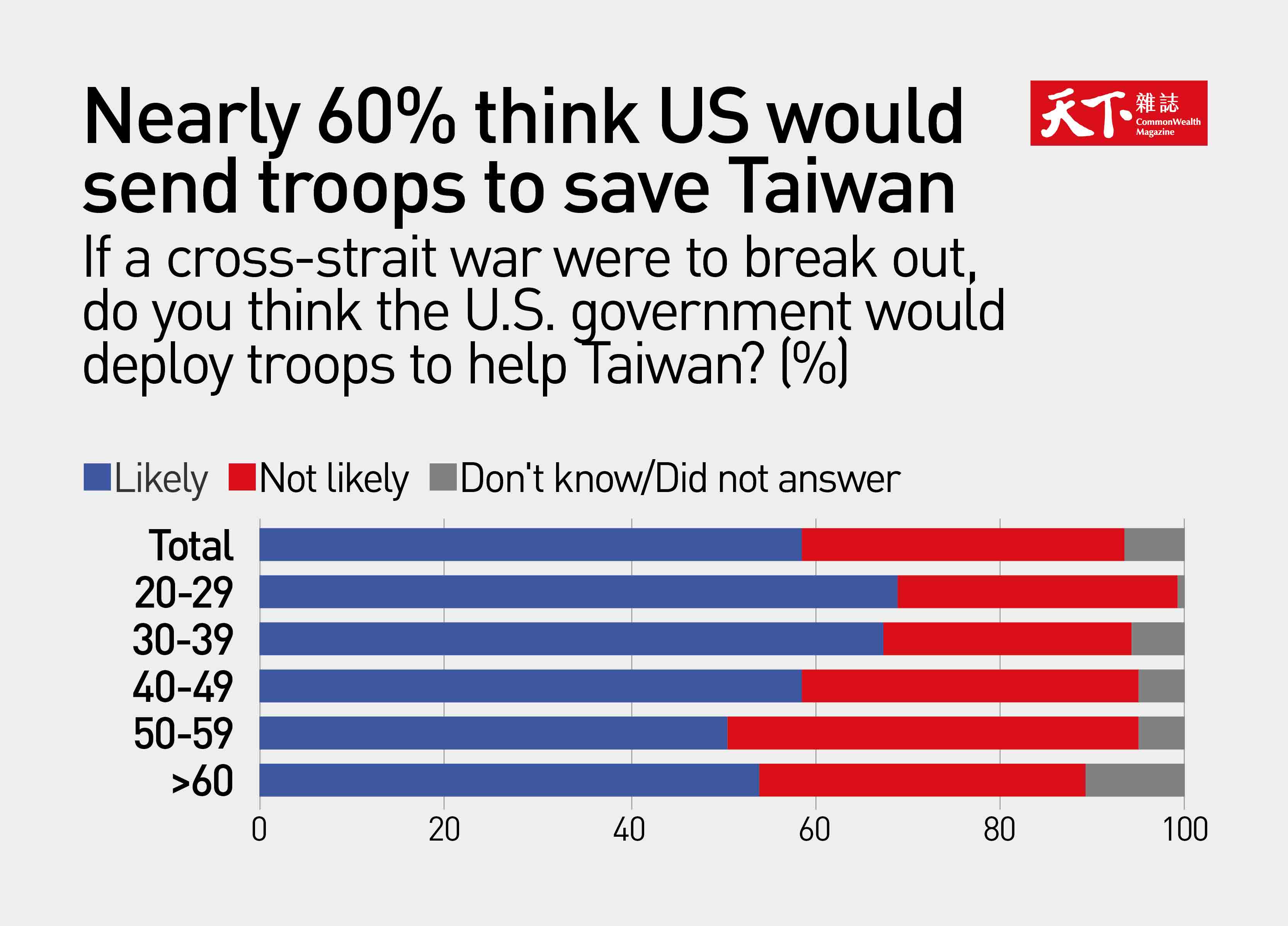
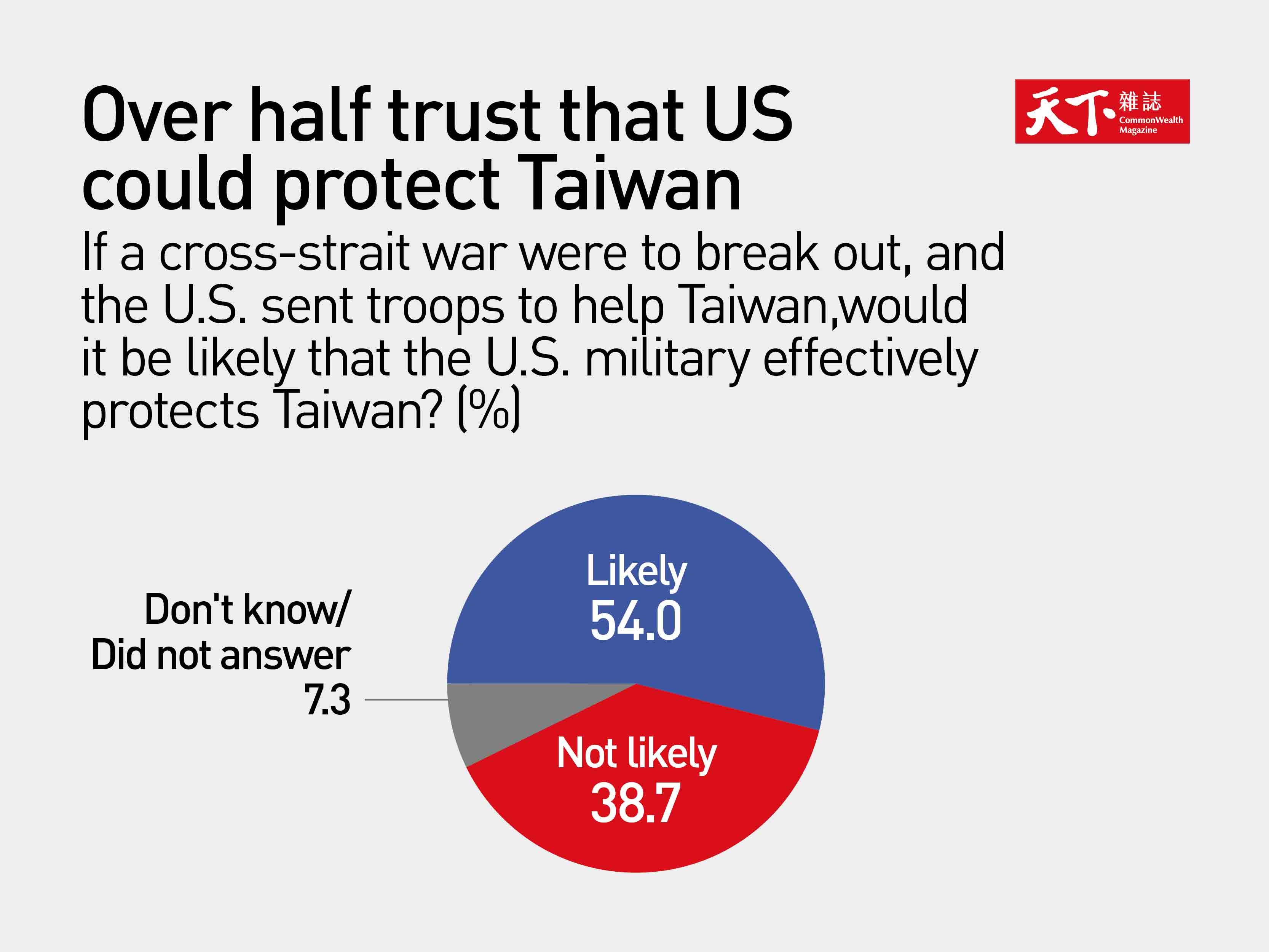
Fukuyama: A big mistake to count on U.S.
Lo said the respondents’ trust in the U.S. corresponded to repeated shows of support for Taiwan from Washington in recent months, leading them to believe or expect that the U.S. will help Taiwan when the chips are down.
That sentiment also influenced Taiwanese perceptions of America’s strength. More than half of respondents did not agree with the proposition that China’s national power and international influence had overtaken that of the U.S.
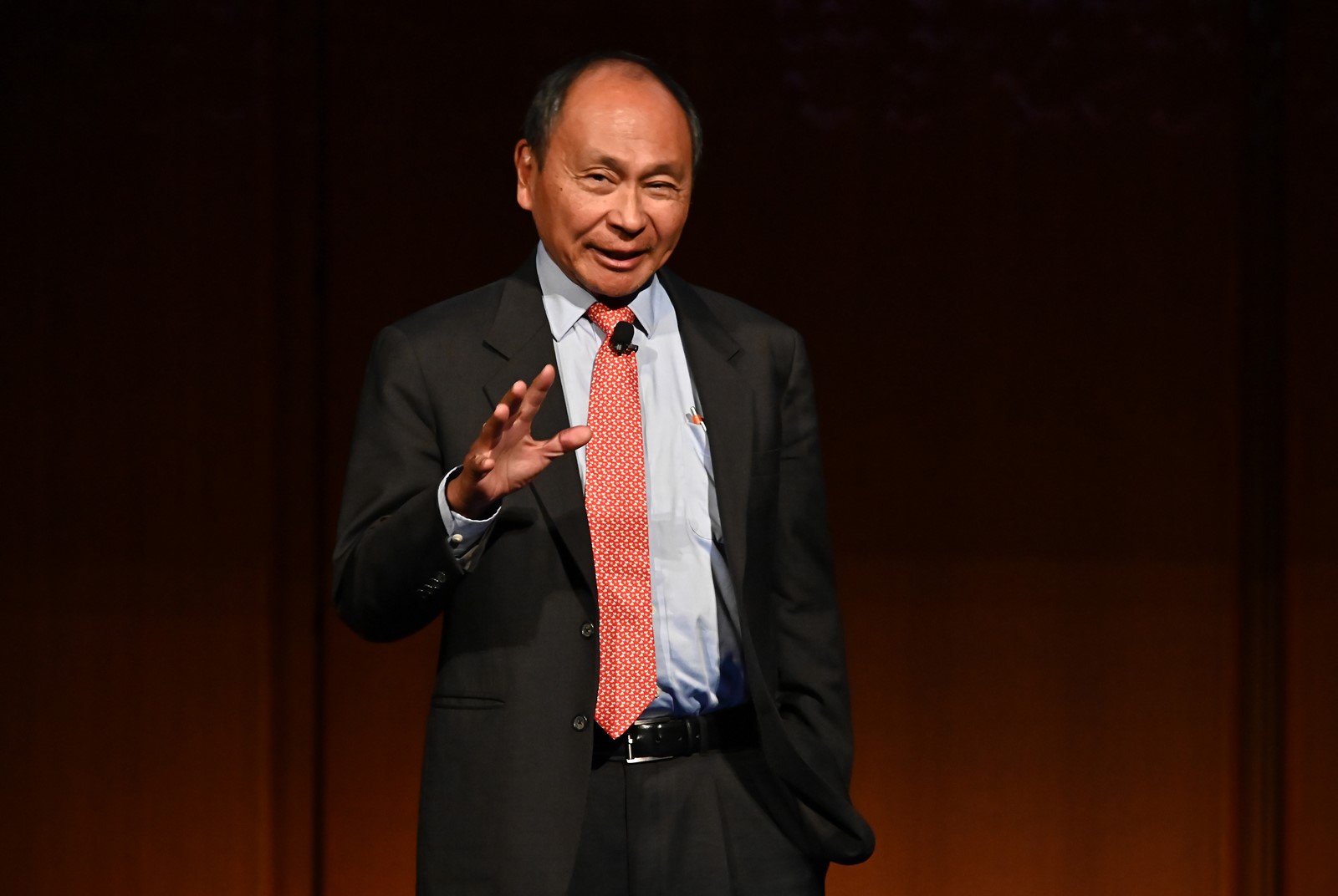 (Source: Getty Images)
(Source: Getty Images)
But Francis Fukuyama, a senior fellow at Stanford University's Freeman Spogli Institute for International Studies and best known for his book “The End of History and the Last Man,” questioned in an interview with CommonWealth whether Taiwanese should feel that way. (Read more: Fukuyama: Taiwan doesn’t take its self-defense seriously enough)
“It appears that a lot of Taiwanese have basically decided there's no way we can defend ourselves from China if it actually comes down to the use of military force, and we'll have to rely on the Americans. That is a big, big mistake,” he said.
“I don’t think there’s any American consensus on the degree to which we ought to extend military support to Taiwan,” he said.
Quite a few scholars and experts in the U.S. share Fukuyama’s concerns over tensions in the Taiwan Strait and worry that China is increasingly capable of using force against Taiwan.
Huang of the KMT argued that those concerns reflected Washington’s Indo-Pacific strategy and desire to counter China’s expansion.
“Taiwan cannot become another Crimea, where it surrenders to China because the United States does not have enough time to react,” Huang said.
In addition, the more anxious America is, the more pressure it exerts on Taiwan, to the point of even interfering in its strategic defense plans and mandatory military service program, interventions that may not be beneficial to Taiwan.
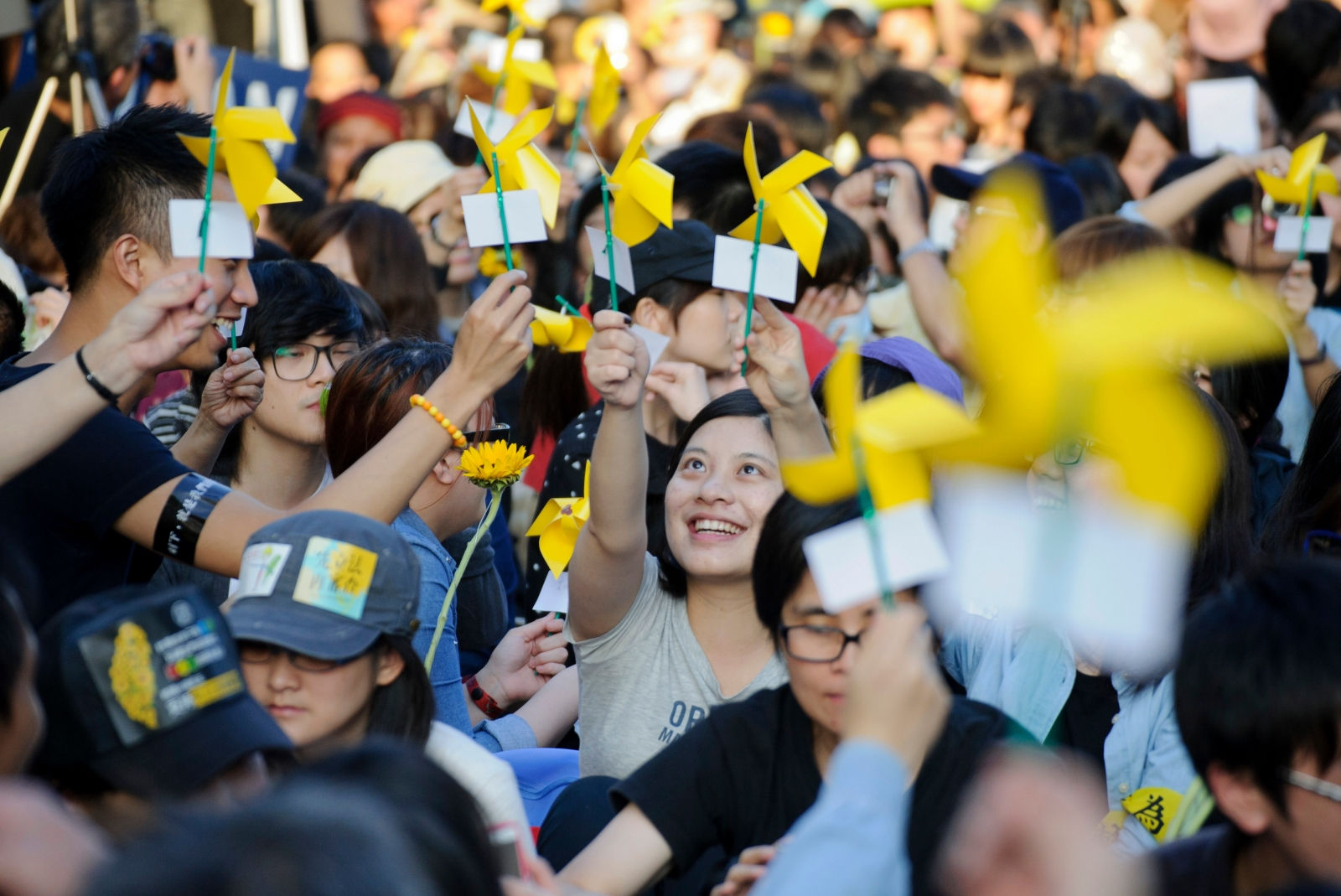 (Source: Ming-Tang Huang)
(Source: Ming-Tang Huang)
Generation gap in perception of United States
Another of the survey’s findings was the variation in how different age groups perceived the United States, with 40 years of age the clear dividing line.
Respondents under 40 were more likely to identify themselves as Taiwanese, more supportive of Taiwan independence, and had a more favorable view of the United States. Because of those values, they were less worried about the possibility of war.
Those over 40, on the other hand, were more likely to identify themselves as both Taiwanese and Chinese and believe that China’s national strength had surpassed that of the U.S., leading to greater angst that war could break out.
When asked about relations with China, “Maintaining the status quo” remained the mainstream view, selected by 45.7 percent of respondents. But that was the lowest in the State of the Union survey’s 20-year history, having peaked at 63.6 percent in 2006.
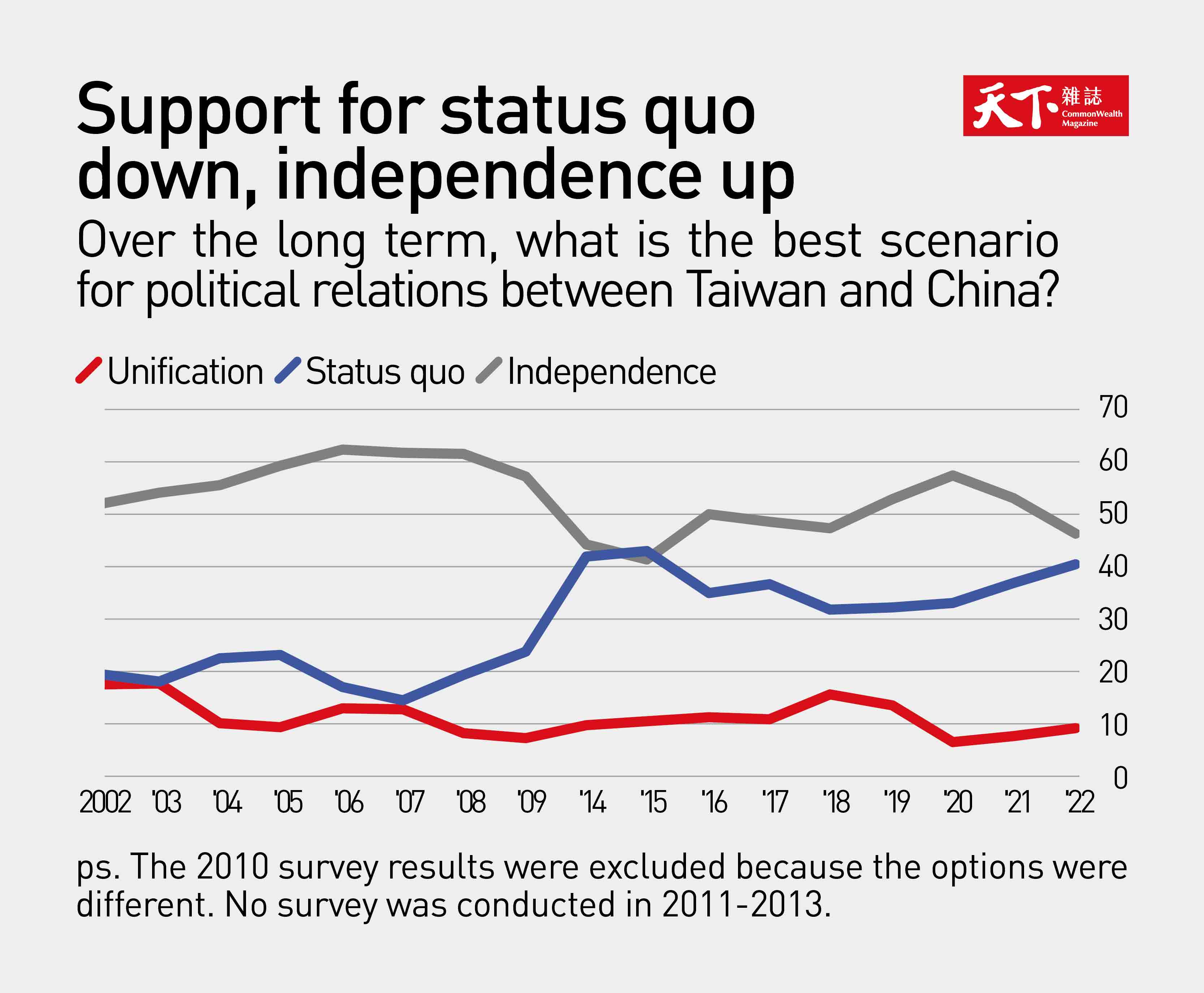
In contrast, backing for “Taiwan independence, but still maintaining peaceful relations with China” was nearly double what it was 20 years ago.
‘Independence but peace’ backed by younger respondents
Among respondents in the 20-29 and 30-39 age brackets, support for “independence but peace” even exceeded that for “maintaining the status quo” by 8-10 percentage points. More than half of respondents aged 50 and over, however, favored “maintaining the status quo.”
In interpreting the results, Huang argued there were only two scenarios under which Taiwan could become formally independent – either Beijing abandons its claims on Taiwan or Taiwan repels a military invasion by China. But neither of those, he said, was realistic.
“Younger people believe America will rescue Taiwan because they were not alive when the U.S. severed relations with Taiwan and don’t understand that it has abandoned Taiwan in the past,” Huang argued.
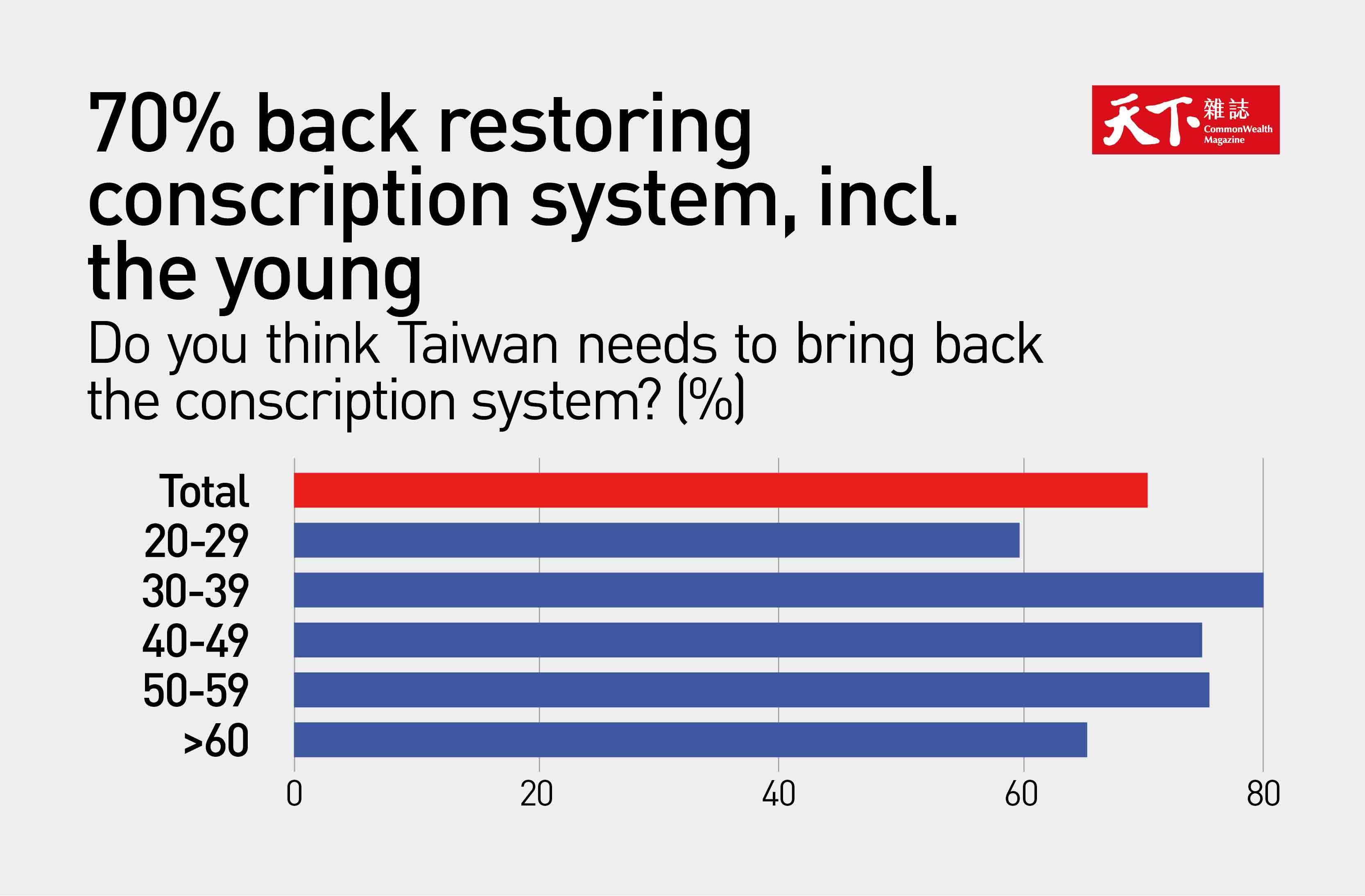
In response to a question on how they perceived U.S. President Joe Biden and Chinese President Xi Jinping, respondents said they trusted neither leader, but the lack of trust in Xi exceeded the distrust of Biden by 18 percentage points.
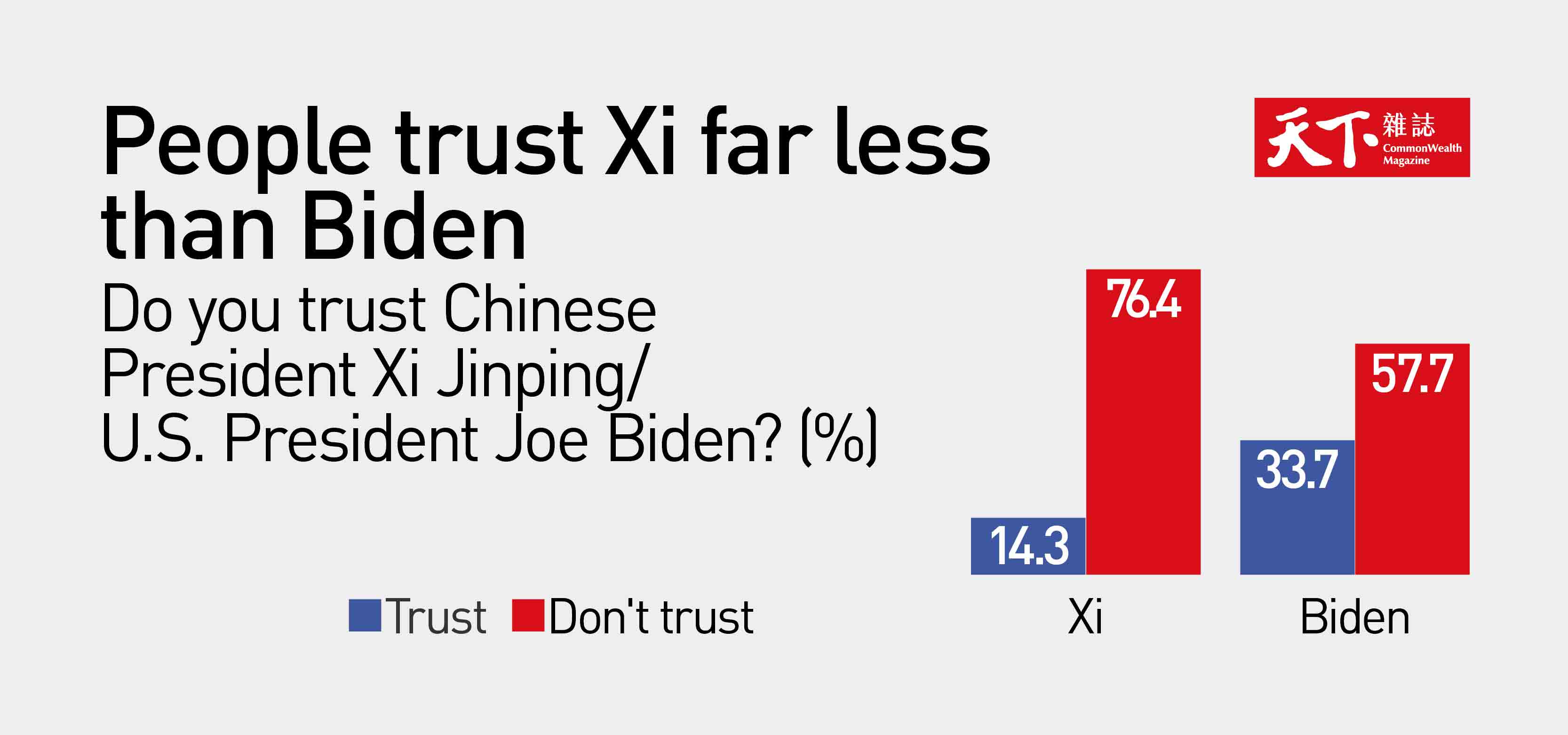
When given different options to describe the triangular relationship between Taiwan, China, and the United States, 46.7 percent of respondents agreed that “Taiwan should maintain the same relations with China and the U.S.,” 31.1 percent favored “pro-U.S. but maintaining peaceful relations with China,” and 6.4 percent backed “pro-China but maintaining good relations with the U.S.”
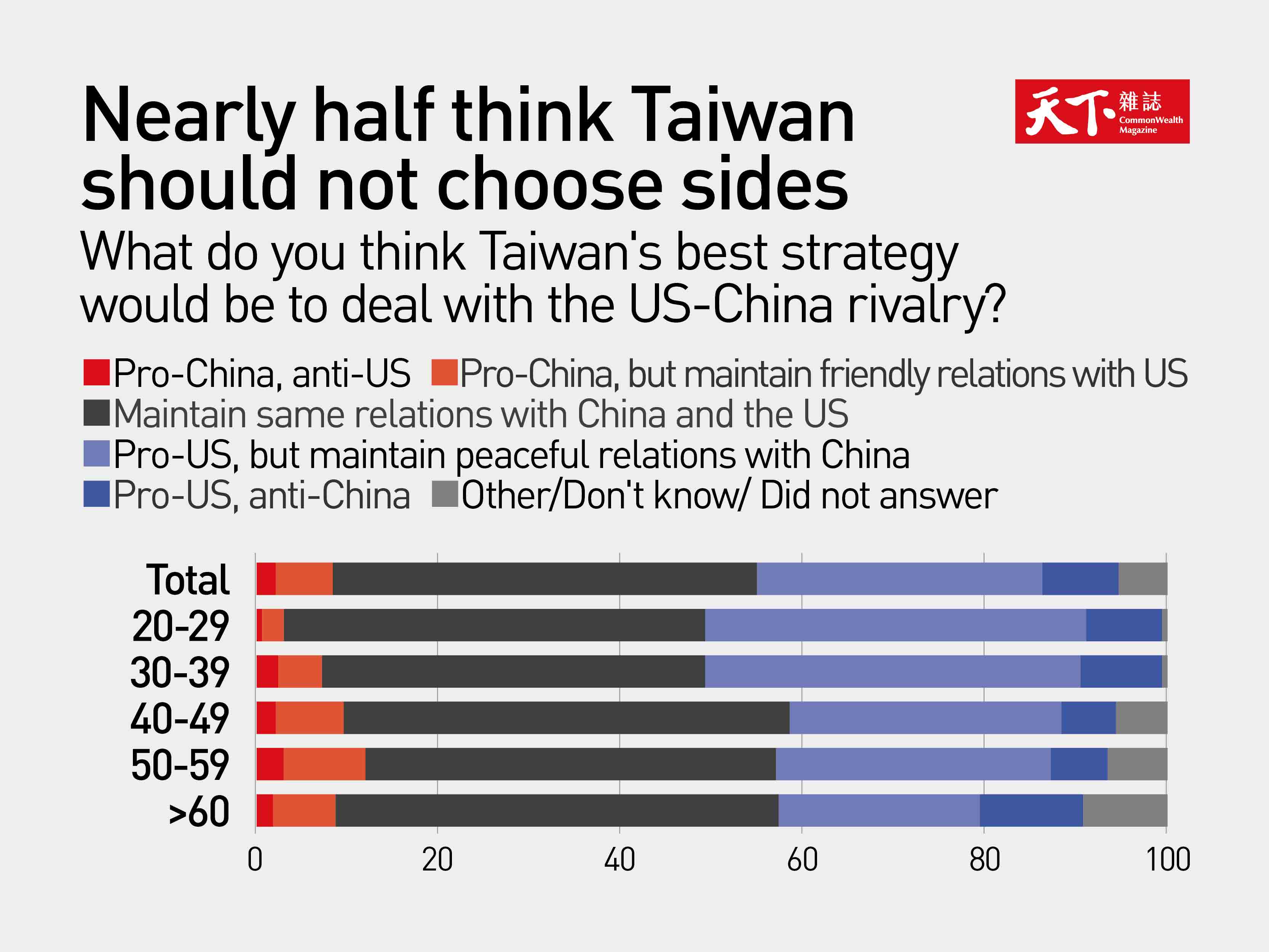
Lo of the DPP said the results reflected the pragmatism of people in Taiwan, who do not want to get caught in the struggle between the two powers but realistically have no choice but to take sides.
“To the DPP, the choice is simple. We want to bring together all forces capable of countering threats, and China is our main threat,” Lo said.
Anti-Americanism has never been a factor in Taiwan, he said.
“Cross-strait relations and U.S.-Taiwan relations are fundamentally different. No matter how good cross-strait relations are, they will always be adversarial, while no matter how bad U.S.-Taiwan relations get, we will always be allies,” Lo said.
 (Source: Getty Images)
(Source: Getty Images)
Huang argued, however, that “taking sides is very dangerous. You have absolutely no leverage and are at the mercy of the United States.”
Whether experts or the average citizen, many in Taiwan see it as a pawn in the battle for dominance between Washington and Beijing and their competing interests.
If China wants to break through the “first island chain,” a strategic line of defense consisting mainly of Japan, Taiwan, and the Philippines, it will have to take back Taiwan. The U.S., on the other hand, wants to check China’s expansion, and Beijing’s threat of using military force against Taiwan adds considerable legitimacy to Washington’s efforts to counter China and maintain the international world order built after World War II.
A pawn in the big power game?
“The greater the tensions in the Taiwan Strait, the more legitimacy the U.S. has to deploy military assets in the region,” said an expert on Taiwan-China-U.S. relations.
Huang argued that Taiwan cannot afford to lean too closely toward either China or the United States. “The only issue is how to figure out to maneuver between the two to avoid war and ensure survival.”
A retired officer from the U.S. Department of Defense disputed the idea that the U.S. has treated Taiwan as a pawn, however, telling CommonWealth that Washington wanted to help Taiwan get stronger so it will not be bullied, in line with the U.S. diplomatic strategy of “peace through strength.”
Taiwan’s international visibility is higher than ever, with U.S. and European media and even Al-Jazeera covering security issues in the Indo-Pacific region. But such attention can be a mixed blessing.
“While most people don’t think [a Chinese military invasion of Taiwan] is imminent as a danger, the PRC is not a transparent regime. No one can know what is written in Xi Jinping’s timetable,” Diamond said.
Thus, despite expectations that China is not likely to launch an attack in the near- or medium-term, it is no time for Taiwan to get complacent.
Have you read?
♦ Why the Chinese military has increased activity near Taiwan
♦ Fukuyama: Taiwan doesn’t take its self-defense seriously enough
♦ Diamond: Taiwan will face an existential threat in the coming decade
Translated by Luke Sabatier
Uploaded by Penny Chiang






